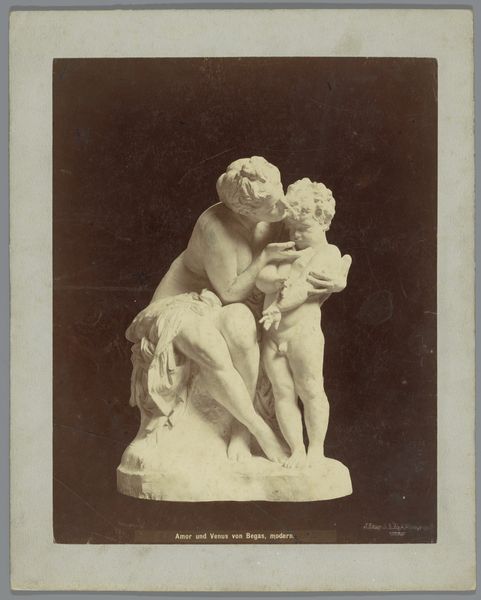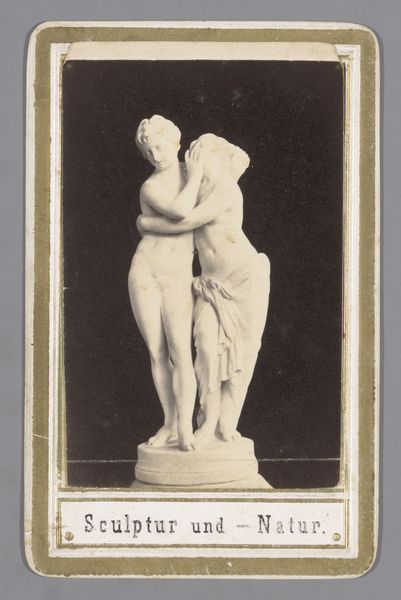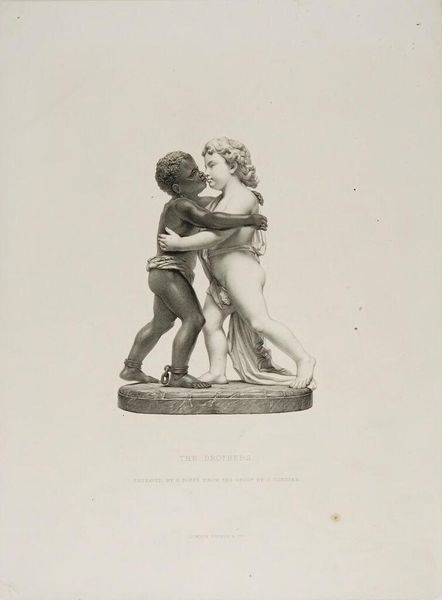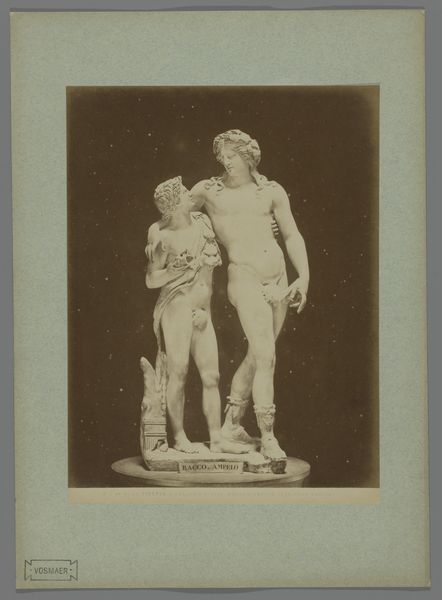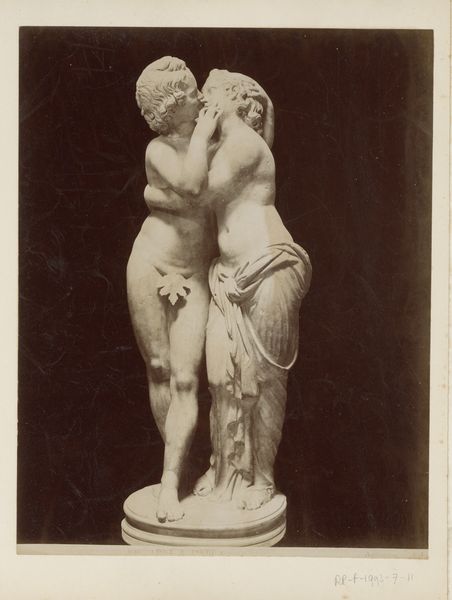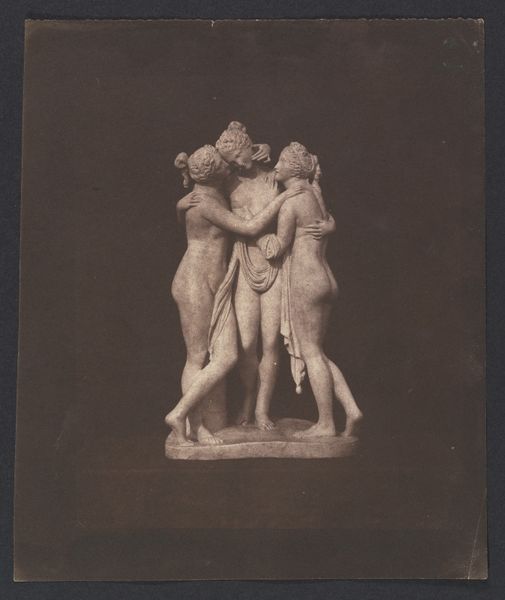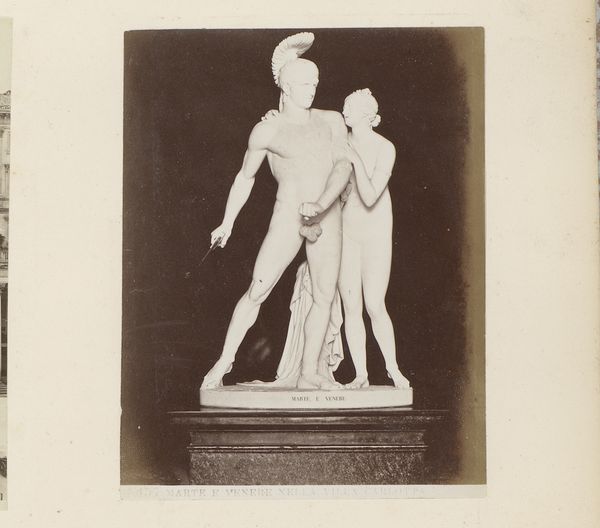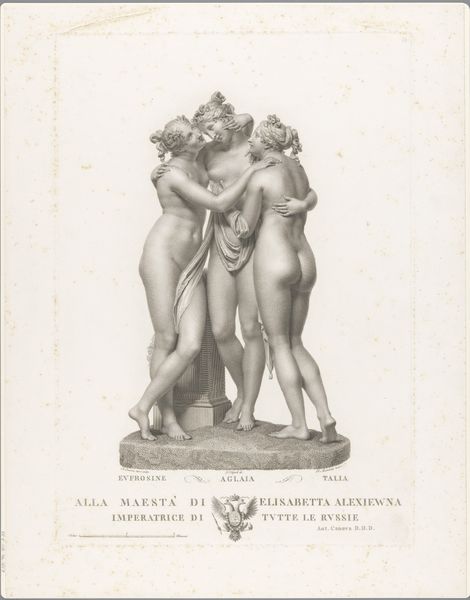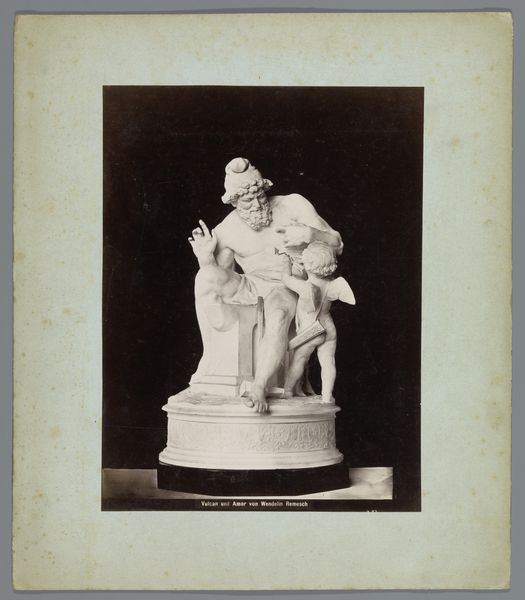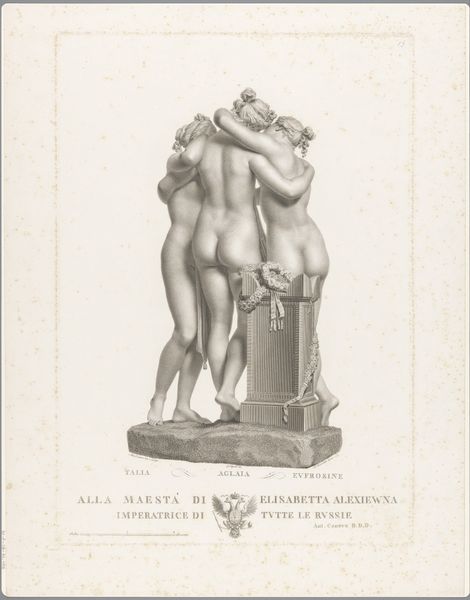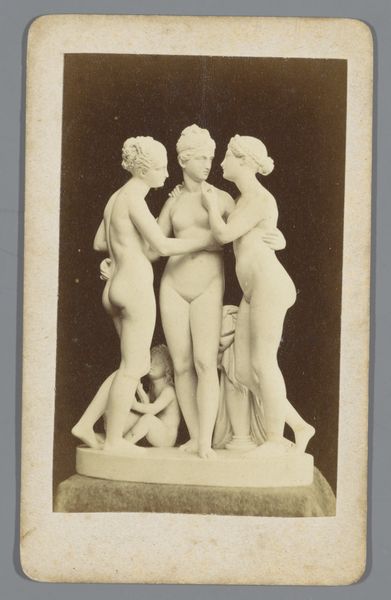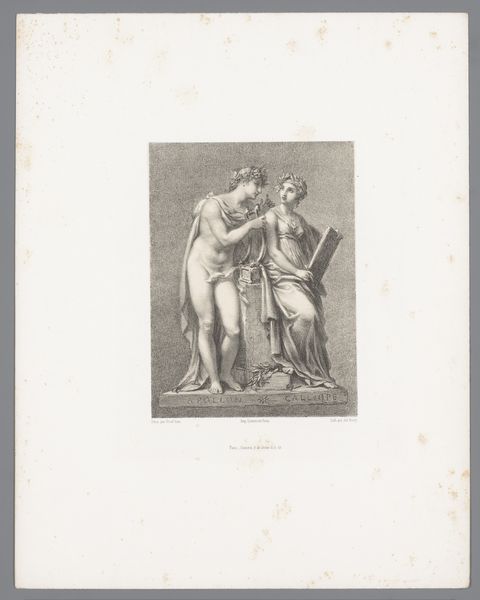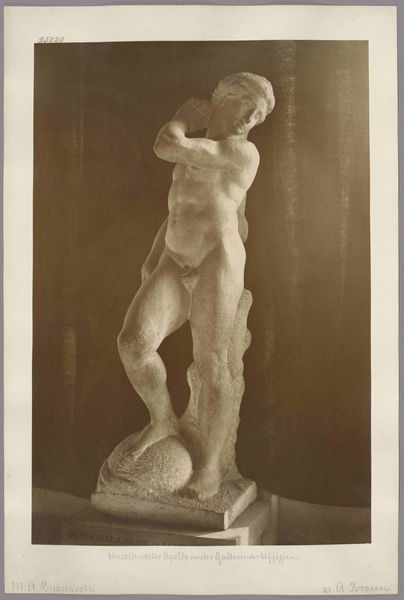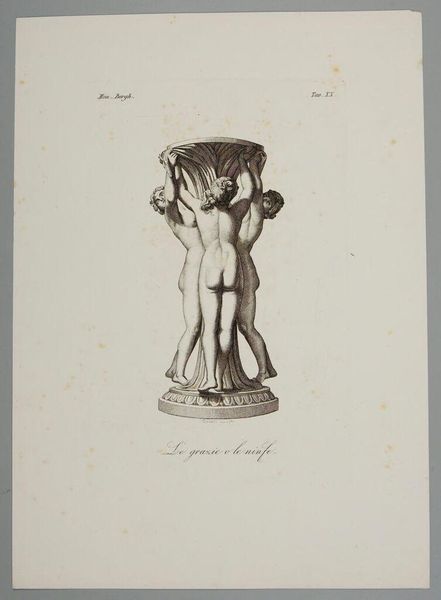
#
pencil drawn
#
photo of handprinted image
#
light pencil work
#
photo restoration
#
shading to add clarity
#
pencil sketch
#
old engraving style
#
pencil work
#
watercolour illustration
#
shading experimentation
Dimensions: height 242 mm, width 312 mm
Copyright: Rijks Museum: Open Domain
Curator: This is Edwin Roffe's engraving from 1873, titled "Uit slavernij bevrijde zwarte jongen in omhelzing met witte jongen" which translates to "Black Boy Freed from Slavery in Embrace with White Boy". Editor: My initial impression is one of… well, discomfort. The rendering, the greyscale quality, it all feels very heavy, laden with something unspoken. Curator: Indeed. The image itself stems from a sculpture and carries a great deal of symbolic weight. The embrace is intended as an allegory of reconciliation, but the freed slave, still shackled, clings to this symbol of whiteness as though seeking validation. Editor: Exactly! And those shackles—we can’t ignore the materiality of them. Metal, restraint, the very physical manifestation of forced labor and oppression. The image, supposedly about liberation, still carries the literal and figurative weight of those chains. Curator: The shackles do remain a potent symbol, reminding the viewer of what the Black child was, or is still, overcoming. The fair child is often viewed as innocence. It's not necessarily intended as domination. This idealized scene is a popular trope reflecting an aspirational desire for harmony after the Civil War in America, and it relies on very codified visual cues. Editor: I get the aspirational aspect. But look closer. This is not just about pure visual allegory—consider the production. An engraving; a technique involving meticulous labor, replicating an idealized form. It speaks to a careful crafting of a specific narrative, likely disseminated widely and consumed by a particular audience, reinforcing certain social power structures. The artwork doesn’t just reflect an ideal; it actively participates in constructing it through the very means of its creation. Curator: That’s a strong point. The mode of reproduction, the intended viewership – they certainly influence the reading. Ultimately, the image freezes this complex history into an easily consumed symbol, a constant reminder, if read with a cynical view, of what the emancipated Black child represents, not necessarily who he IS. Editor: Right. While the embrace appears conciliatory, analyzing its construction reveals the complicated entanglement of materials, process, and socio-political power at play. Curator: A nuanced, though difficult image. The symbol of hope entwined inextricably with the chains of a past—not forgotten, not truly overcome, but a challenge, still resonating into the present day. Editor: Indeed. Materially and symbolically, there’s much more than meets the eye within this seemingly simple embrace.
Comments
No comments
Be the first to comment and join the conversation on the ultimate creative platform.
